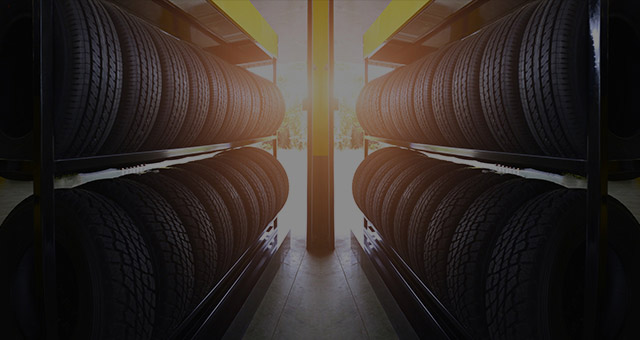Discover Top-Quality Tires Morris IL: Pick the most effective for Your Automobile
Tire Solution: Comprehending Tire Stress Surveillance Equipments
Recognizing Tire Pressure Monitoring Systems (TPMS) is a critical aspect of maintaining optimum car efficiency and security when driving. With advancements in automotive modern technology, TPMS has actually come to be a standard attribute in modern automobiles, supplying real-time info on tire pressure degrees. Digging much deeper right into the ins and outs of TPMS, one can reveal the various parts that make up this system and the value of each in ensuring exact monitoring. From straight to indirect TPMS systems, the landscape of tire pressure surveillance varies, each with its distinct set of benefits and factors to consider. Remain tuned to unravel the intricacies of TPMS, from maintenance pointers to the indisputable benefits of keeping your tires effectively inflated. discount tires morris il.

Value of TPMS
The significance of Tire Pressure Tracking Systems (TPMS) hinges on their capacity to improve vehicle security and efficiency via real-time surveillance of tire pressure degrees. Keeping the correct tire pressure is vital for guaranteeing optimum handling, stopping, and overall safety of a vehicle. TPMS offers motorists with immediate feedback on any overinflated or underinflated tires, permitting prompt adjustments to be made.
Parts of TPMS
Sensing units are typically located in the tire shutoff stem or connected to the wheel setting up, where they gauge tire stress and send information to the control component. Some progressed TPMS versions likewise display the actual tire stress analyses for each tire, providing chauffeurs with real-time info to make sure ideal tire performance and security. By keeping an eye on tire stress constantly, TPMS helps avoid accidents, reduces tire wear, and improves gas performance, making it a crucial component for vehicle safety and security and efficiency. tires morris il.
Kinds Of TPMS

On the other hand, indirect TPMS depends on the automobile's wheel speed sensing units to monitor tire stress. This system discovers underinflation by contrasting the rotational speeds of the wheels. Indirect TPMS is much less costly than direct TPMS, as it utilizes existing sensing units within the vehicle.
While straight TPMS offers much more accurate readings, indirect TPMS is less complex in design and typically needs much less maintenance. Both systems have their constraints and advantages, and the option in between them commonly depends on aspects such as price, car make, and individual choice. Comprehending the differences between these 2 kinds of TPMS can help automobile proprietors make notified choices regarding tire maintenance and safety and security.
TPMS Maintenance Tips
Effective upkeep of TPMS is important for making sure optimum efficiency and safety of your lorry. On a regular basis inspecting the TPMS sensors for any type of damages or deterioration is important. Ensure that the sensors visit this page are tidy and complimentary from debris that might hinder their performance. Additionally, it is advisable to check the sensor batteries regularly and change them as required to assure exact analyses. Conduct regular look at the tire pressure levels Read Full Report and compare them with the TPMS readings to ensure they correspond. Rectify the system adhering to the supplier's guidelines if there are any disparities. Throughout tire rotation or replacement, make sure that the TPMS parts are taken care of very carefully to avoid any type of possible damage. If the TPMS cautioning light illuminates on the control panel, address the concern promptly by inspecting the tire pressures and the general system for any kind of mistakes. By adhering to these maintenance tips, you can extend the lifespan of your TPMS and improve the security of your driving experience.
Advantages of Proper Tire Pressure
Maintaining appropriate tire pressure, as highlighted in TPMS Maintenance Tips, is vital for enjoying the many advantages connected with optimum tire pressure levels. One of the primary benefits of preserving the right tire pressure is improved fuel effectiveness. When tires are properly blown up, there is a knockout post much less moving resistance, causing much better gas economy. Additionally, appropriate tire stress ensures even tire wear, extending the life-span of the tires and advertising safer driving problems. With the appropriate tire stress, lorries also have far better handling and grip, especially in negative climate condition. This can boost general driving performance and safety and security for the vehicle driver and guests. Keeping optimal tire pressure can add to a smoother and more comfy adventure by reducing vibrations and noise created by underinflated tires. To conclude, the advantages of appropriate tire stress exceed simply tire durability; they encompass improved gas effectiveness, improved security, far better automobile efficiency, and overall driving convenience.
Conclusion
Finally, comprehending tire stress surveillance systems (TPMS) is crucial for keeping optimum tire stress and guaranteeing automobile safety. By acknowledging the value of TPMS, being acquainted with its parts, knowing the various types readily available, sticking to proper upkeep suggestions, and recognizing the advantages of preserving appropriate tire pressure, motorists can boost their driving experience and extend the life expectancy of their tires. Proper tire stress is key to risk-free and effective automobile operation.
